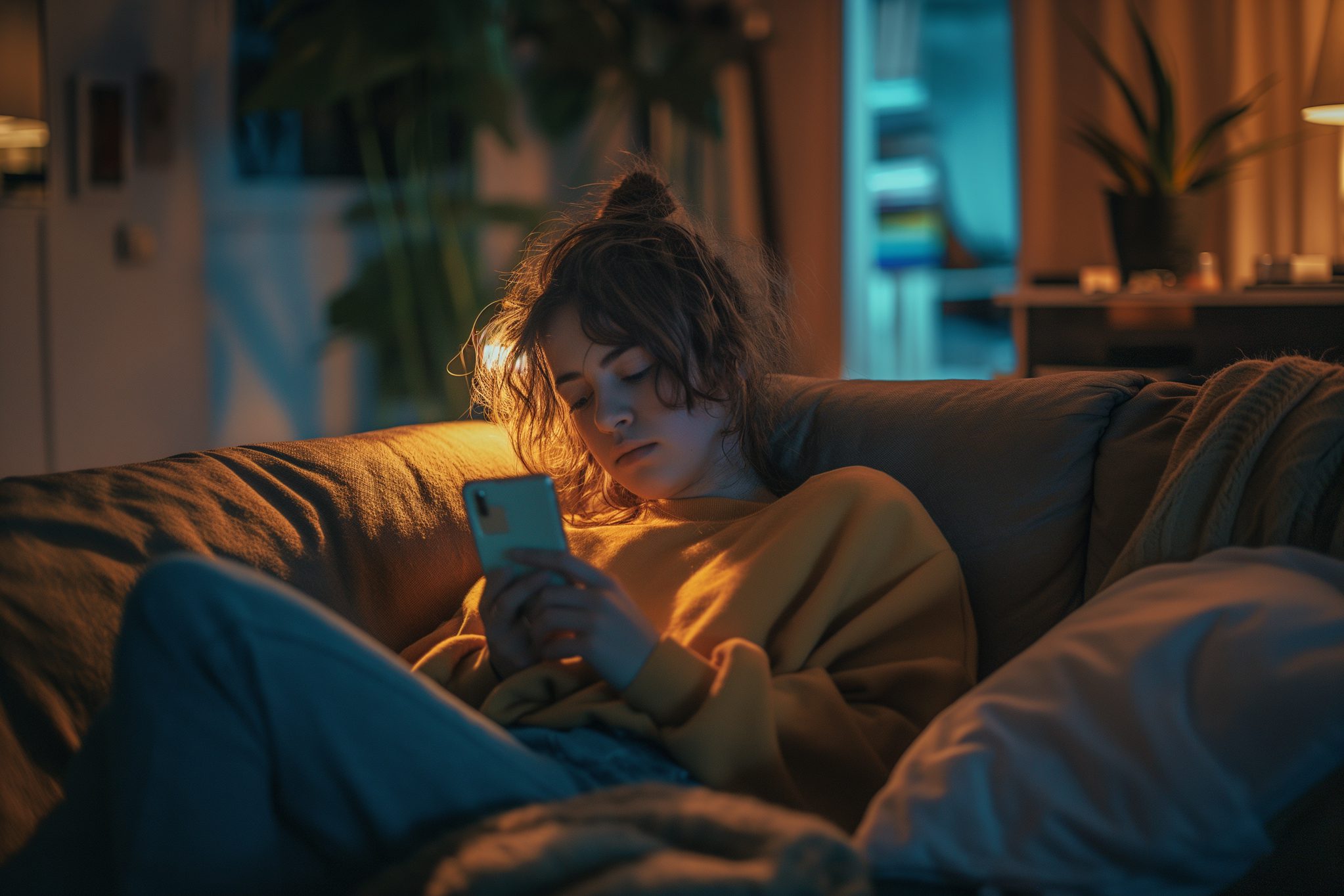
Why Are Teenagers Prone to Sleep Later, and How Does It Affect Their School Performance?
Explore the link between teenagers’ sleep habits and academic performance. Discover why they sleep later and how it affects their grades.

If you’re a teenager or even a parent to one, you know that teenagers tend to sleep in. It can be challenging for teens to get up on time for school, but fortunately, there’s a scientific explanation as to why teenagers are prone to sleeping later than other age groups. More importantly, several studies show that the quality of sleep teenagers get can even impact their academic performance.
In this article, we’ll explore why teenagers are prone to sleeping later, how lost sleep affects their academic performance, and what happens when they do sleep in. By the end of this article, you’ll understand teenagers and their sleeping patterns and just how crucial sleep is to their health and academic performance.
Why Do Teenagers Tend to Sleep Later?
While you might think that teenagers sleep later simply because they stay up later, it’s not that simple. In fact, there are actually biological reasons to explain why teenagers sleep in later and have a harder time getting up in the morning. According to one study from 2020, teenagers in this stage of their lives are affected by environmental and biological factors that can impact their ability to maintain a regular circadian rhythm.
Some of these external environmental influences that can limit teens' ability to sleep normally include the use of electronics at night, caffeine consumption, and even excessive homework. A study from Sleep Medicine Reviews also proved that tobacco and alcohol use can negatively impact teens and their ability to get adequate rest. Coupled with the normal puberty-associated shift in their circadian rhythm, it’s no wonder that teenagers sleep later than others (Source: PubMed)!
As you can see, there are both external and biological components to teens sleeping later in an effort to get enough sleep. Unfortunately, the early start times for many schools actually limit the sleep health of many teens. As you may expect, research shows that teens suffer academically because of their inability to get enough sleep.
How Does Lost Sleep Affect Academic Performance?
Teens who are unable to get enough sleep experience adverse effects on their overall academic performance. Unfortunately, loss of sleep during the weekdays, since teens tend to undersleep from Monday to Friday, has been associated with poorer academic performance (Source: Taylor & Francis Online).
Interestingly enough, this study suggests that girls are more likely to experience detrimental effects on their grades as compared to their male counterparts. Still, teens as a whole are more likely to struggle with their grades and their sleep, but there is proof that this can even continue into their university or college studies.
There have been studies that show that students in college, many in their late teens to early young adult years, experience similar results and challenges with maintaining adequate grades. A study from PubMed showed that irregular sleep or even the loss of sleep led to lower academic performance, but interventions that used light therapy can help combat these challenges.
Clearly, sleep and academic performance are closely tied for teens and early young adults. As you can imagine, the effects of later school start times are more positive. While only a few schools have begun to implement these at a later start, studies show that it is only beneficial to teens.
How Teenagers Perform in School After Sleeping Later
With many schools still utilizing earlier start times, teens will continue to struggle during this era of their lives. However, some recent studies serve as proof that the research might force schools to switch to a later start time, especially when considering how beneficial it could be for academic performance.
Unlike with earlier start times and lost sleep, teens who are allowed to sleep in until 9:00 in the morning experience higher academic performance than those who wake up at 8:00 or even 8:30. The reason for this is that the 9:00 wake-up time is more aligned with the delayed circadian rhythm that teens experience during puberty. Surprisingly, later start times were also associated with less prevalence of food addiction and eating disorders (Source: PubMed).
What this suggests is not that sleep causes eating disorders but that a regular circadian rhythm and adequate sleep lead to better teen health and better academic performance overall. Teens get the best sleep if they go to bed between 10:00 and 11:00, showing that it’s not always about getting to bed early but about creating the right environment for sleep. As long as teens get adequate sleep, then they will experience better academic performance and do well in school.
How to Support Teen Sleep Health and Academic Performance
Whether you’re a teen reading this or a parent, it’s important to take this information to heart and to ensure optimal sleep health. That means not only getting enough sleep but creating the right setting for rest. Instead of playing video games and being online on social media, teens can spend time with family before bed, according to an article from the Journal of Adolescent Health. Teens who spent time with family before they went to bed enjoyed greater rest and better grades.
Furthermore, teens who struggle with sleep can use light exposure as a means of regulating themselves. That means getting light exposure in the morning and avoiding blue light exposure—typically from TVs, computers, and more—at night before lying down to sleep. Lack of sleep can lead to challenges, even after attempting to get adequate rest over the weekend (Source: Sleep). That’s why it is so important to understand teen sleep patterns and ensure that no matter what, they get adequate rest so they can perform well in school.
Take Steps Today to Support Your Sleep Health
With sleep health and grades so deeply intertwined, teens should take steps to support adequate sleep. From small habit changes to later start times for school, there’s plenty that you can do to support your or your teen’s health. We hope you learned a lot about sleep health and its connection to academic performance. What steps will you take to support better rest and grades?
FAQ
Why do teenagers naturally stay up so late?
It’s not just about phones and video games—puberty shifts their internal clock, making them feel sleepy later than adults or younger kids. Their bodies aren’t wired to fall asleep early.
Can teenagers “catch up” on sleep over the weekend?
While sleeping in can help a little, it won’t fully fix sleep debt. A consistent sleep schedule is the best way to improve energy, focus, and academic performance.
Is there a best time for teens to do homework for better sleep?
Yes! Finishing homework at least an hour before bed gives the brain time to relax. Doing homework right before bed can make it harder to fall asleep.
Can taking naps after school mess up my sleep schedule?
Long naps (over 30–45 minutes) can make it harder to fall asleep at night. If you need a nap, keep it short and before 3 PM to avoid disrupting your bedtime.
Do teenagers really need more sleep than adults?
Yes! Teens need 8–10 hours of sleep per night, but most only get around 6–7 hours due to homework, social media, and early school start times.

Written by
Marie Soukup
Marie Soukup is a seasoned copywriter, editor, and Integrative Nutrition Health Coach with a certificate from the Institute of Integrative Nutrition (IIN). With years of experience working with brands across diverse industries, Marie is passionate about holistic health and crafting compelling content.
Download Pillow
Get help
Press & News
Legal
Connect
X (Twitter)
Company
Copyright © Neybox Digital Ltd.


